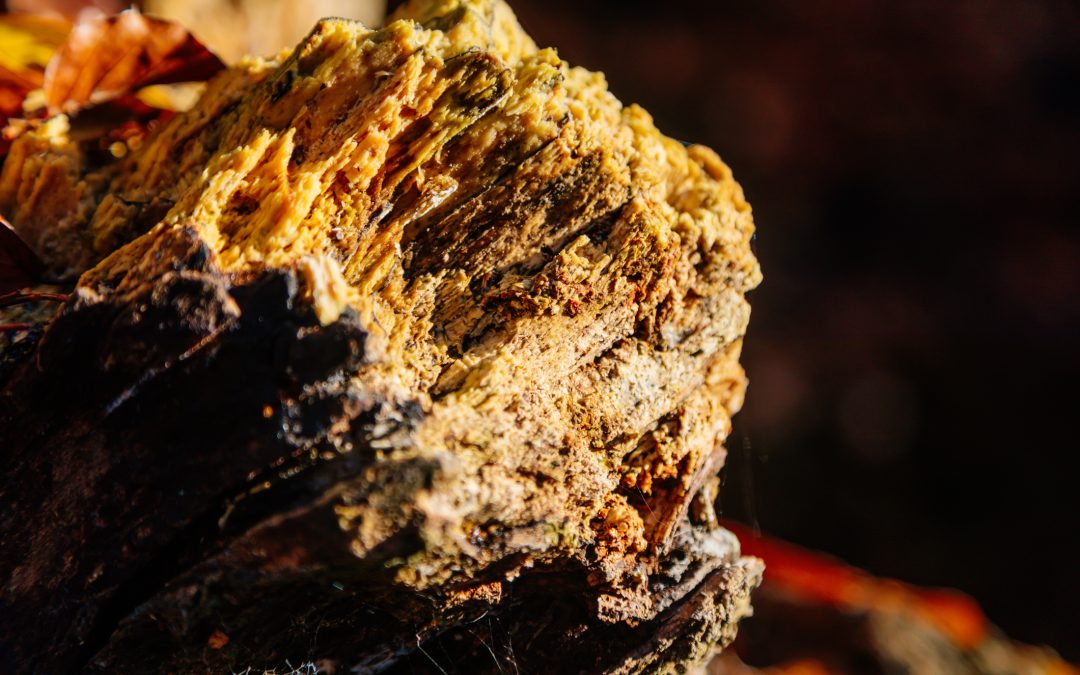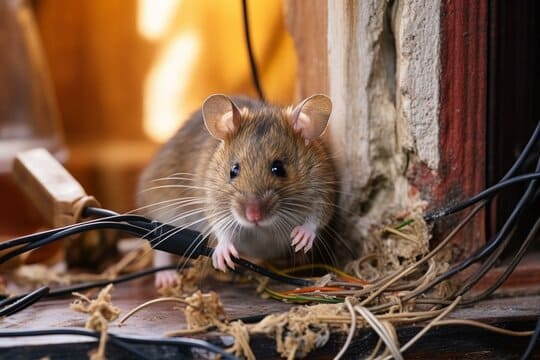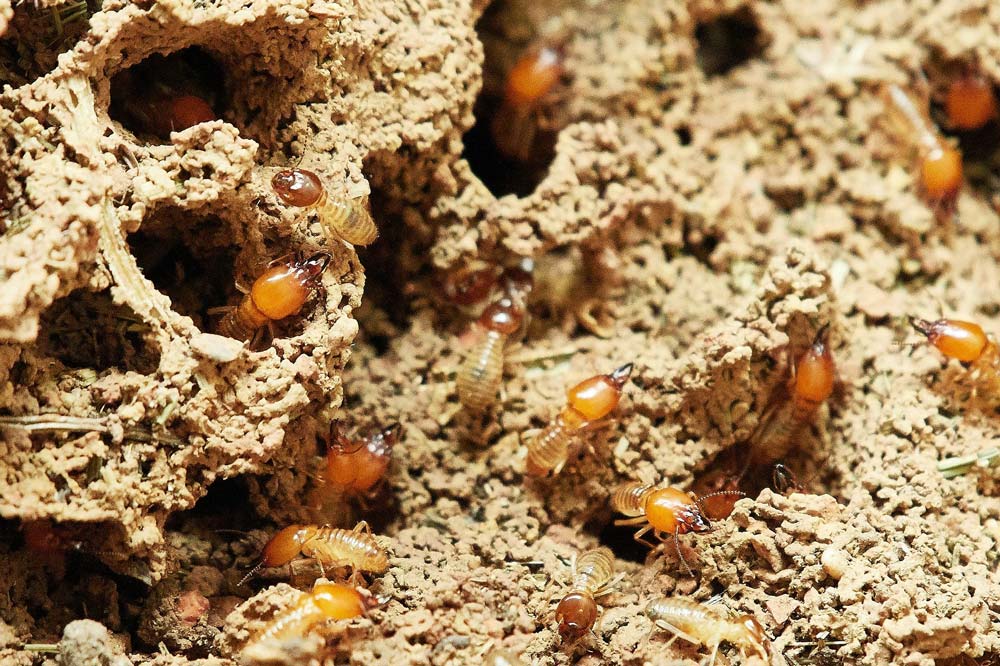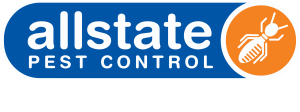
How Termites Adapt To Changing Seasons
They’re small, move discreetly and cause silent damage in homes and businesses across Adelaide. Learn more about what makes termites the ultimate perennial pests and how you can avoid termite attacks no matter the season in this Hivemind blog.
What questions will this article answer?
Spring: peak swarming season
Thousands of male and female swarmer termites leave the colony, pair off to mate and establish a new nesting site.
Summer: the peak season
Most termites will spend summer foraging for food and eating, and Queens can lay up to 30,000 eggs in a day.
Autumn: cold weather preparations
Termites will start to seek out sources of warmth once the temperature drops below 23 degrees. Drywood termites swarm in late summer and early autumn.
Winter: keeping warm
Termites can endure the harsh winter by tunnelling deeper underground, foraging for food closer to their nest, huddling closely and cease laying eggs.
How to spot a termite infestation
Look for mud tubes, hollowed out sounds when tapping wooden structures, discarded swarmer wings and physical damage around your home.
Preventing a termite outbreak
Yearly termite inspections are the best way to protect your home from a termite infestation.
For fast and reliable termite protection all year, choose Allstate
Our highly trained technicians are available 24/7 for urgent advice for termite issues in all suburbs of Adelaide.
Spring: peak swarming season
To improve the survival of their species, termites swarm to reproduce and expand their geographical reach. This is a key sign that you probably have a mature termite colony nearby.
For most termites, this normally happens in warm and humid weather, in late spring to early summer, after rainfall. You might see up to 50,000 male and female termites pair off to mate and establish a new nesting site. Swarming during the daytime is most common, though some species prefer the evenings. If you have lots of trees, woodpiles or ponds on your property, this could be very appealing for swarmers, so it’s best to stay alert.
Once swarmers have completed the fertilisation process, they will lose their wings and become the new primary King and Queen for the new colony. Pay attention to flying termites and discarded wings around your home in spring.
Summer: the peak season
For most subterranean termites, summer is a hive of activity! With swarming still occurring in early summer and Queens laying up to 30,000 eggs in a single day, it won’t take long to grow a formidable termite colony right at your doorstep.
Most termites will spend summer foraging for food and eating, so be aware of changes to dead tree stumps, wooden sleepers, fencing, timber structures and furniture around your home.
Though termite workers do not survive through summer, secondary Queen termites step up with their egg laying to well and truly compensate for the loss.
Dampwood termites predominantly swarm during the summer season, and their soldiers are known to grow up to 15mm long.
Autumn: cold weather preparations
As the mercury drops, termites start making preparations to keep the colony warm and toasty for the upcoming winter. Towards the end of autumn, when the temperature falls under their preferred 23 degrees, you’ll find them looking for cosy places to nest, which can include inside your home.
Unlike most species of termites, drywood termites swarm in late summer and early autumn. We recommend staying vigilant for these winged termites searching for nesting sites in timber structures around your property as the weather cools down.
Winter: keeping warm
While termites are active all year round, especially if they are tunnelling through wooden structures inside your home protected from the cold. Though warm weather provides optimal survival conditions, termites will adjust their behaviour in the following ways to endure the harsh winter climate:
- Subterranean termites are generally less active
- They will tunnel deeper underground to seek warmth, and seal off tunnels to limit draughts of cold air
- They’ll forage for food closer to their nest, ignoring the food that has been exposed to the cold
- Queens often halt laying eggs when it gets cold enough
- They will huddle closely to conserve heat
Avoid skipping a termite inspection. Book with Allstate today.
 or
or
How to spot a termite infestation
Termites are notorious for quietly causing significant destruction to your home, and it is usually not noticeable until the damage is severe. Stay aware of a termite attacks all year round by looking out for the following signs:
- Mud tubes along walls, beams and foundations
- Piles of discarded wings from termite swarmers near doors and windows
- Unexplained cracks and peeling in plasterboards and paint
- Creaking, blistering, warping and buckling doorframes and floorboards
- Hollow sounds from wood and timber structures when tapped
Worried about signs of termites? Speak to an expert today.
 or
or
Preventing a termite outbreak
While termite damage is expensive to fix, it’s considered to be highly preventable with assistance from the right professional expertise. Here’s our suggestions for staying termite-free at your home or business:
Yearly inspections
At Allstate, we follow government guidelines which recommend yearly termite inspections, conducted by licensed termite inspectors adhering to strict quality standards, for all homes and businesses in Adelaide. However, if you are in a high-risk area, more frequent termite inspections may be even more effective.
Reduce levels of moisture
Termites thrive in warm, humid environments, so we recommend making sure that your home drainage system is in good working order. Inspect your plumbing for leaks in pipes, taps and drains, and check that your gutters aren’t clogged and holding water. Fix these issues as soon as they arise so that they don’t attract termites, as well as other pests.
Regular yard maintenance
Avoid storing wood piles and sleepers near your home where possible and remove dead tree stumps. Keep tree branches, shrubs and bushes well-trimmed away from the sides of your house.
For fast and reliable termite protection all year, choose Allstate
Active throughout all seasons, termite attacks are no small matter. It’s thought that 1 in 5 Adelaide homes are affected by termite damage, but you can avoid becoming part of this statistic by arranging a free termite assessment with a licensed termite inspector from Allstate.
Locally operated since 1986, Allstate has provided premium pest control services to clients across all suburbs of Adelaide. Available for urgent advice 24/7, our highly trained pest technicians offer innovative, tailored treatments and solutions for pest outbreaks of all sizes in residential, commercial and industrial settings, as well as protection for new builds.
With a range of long- and short-term termite control measures on offer, covered by competitive warranties and accessible with payment plans, you can safeguard your family from termites sooner rather than later.






